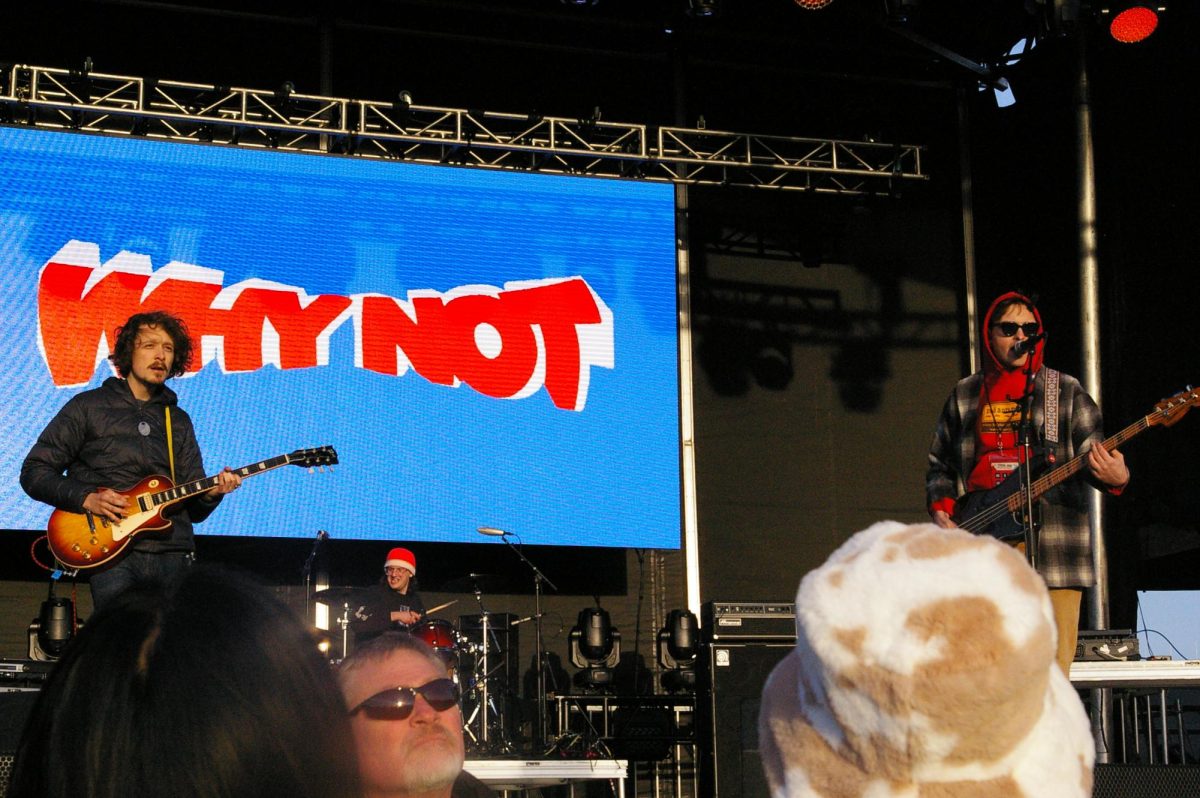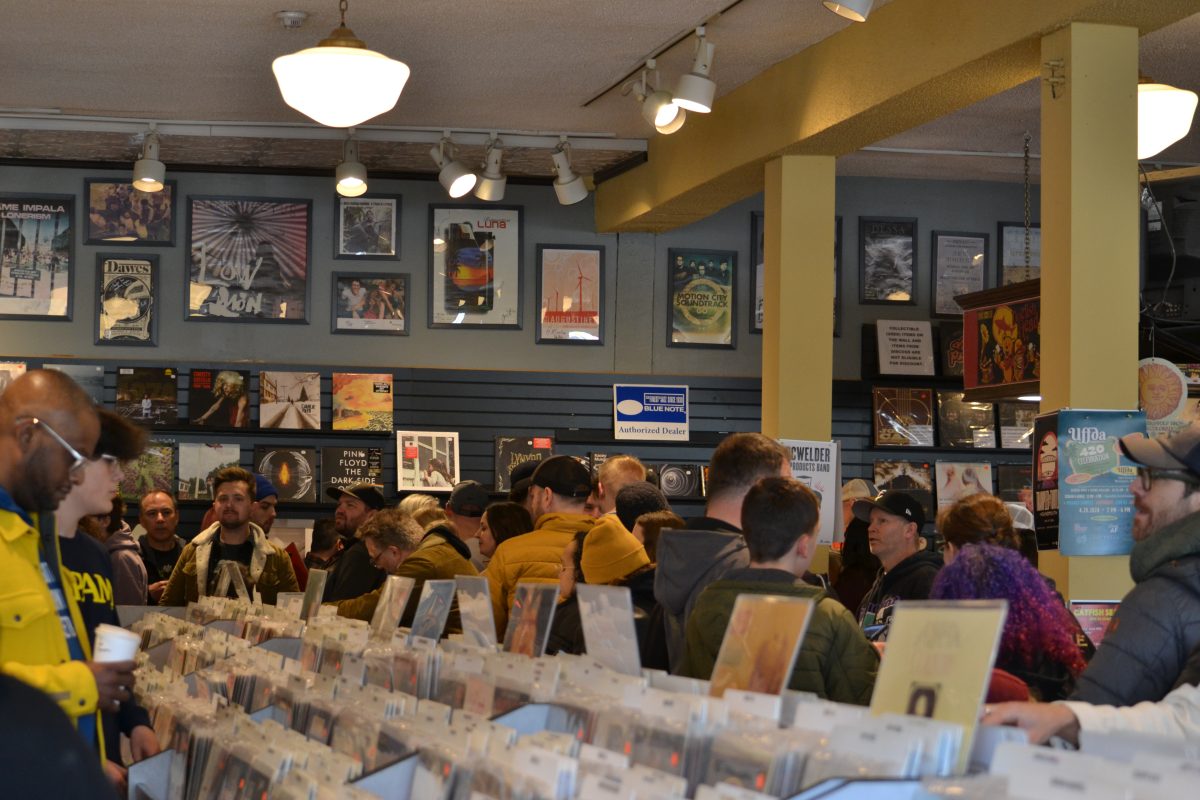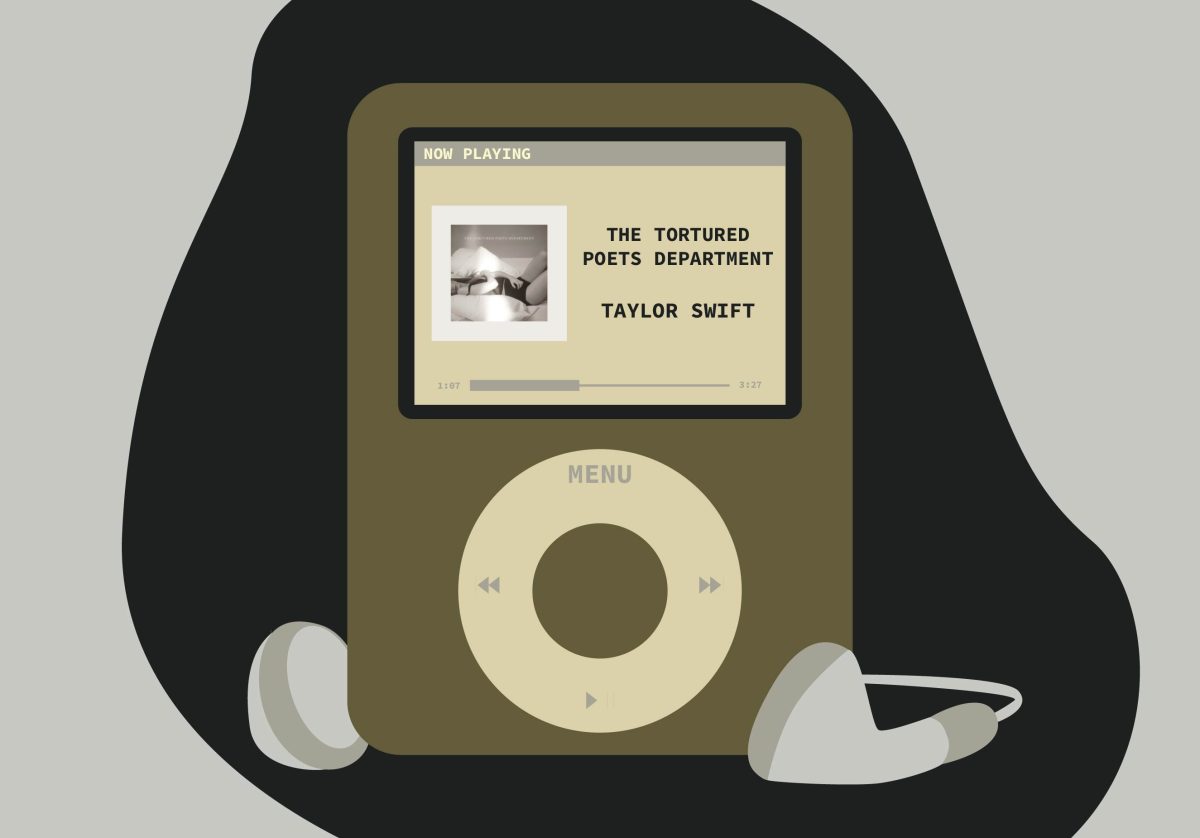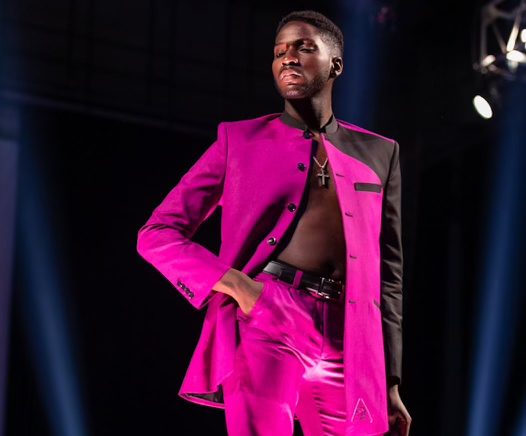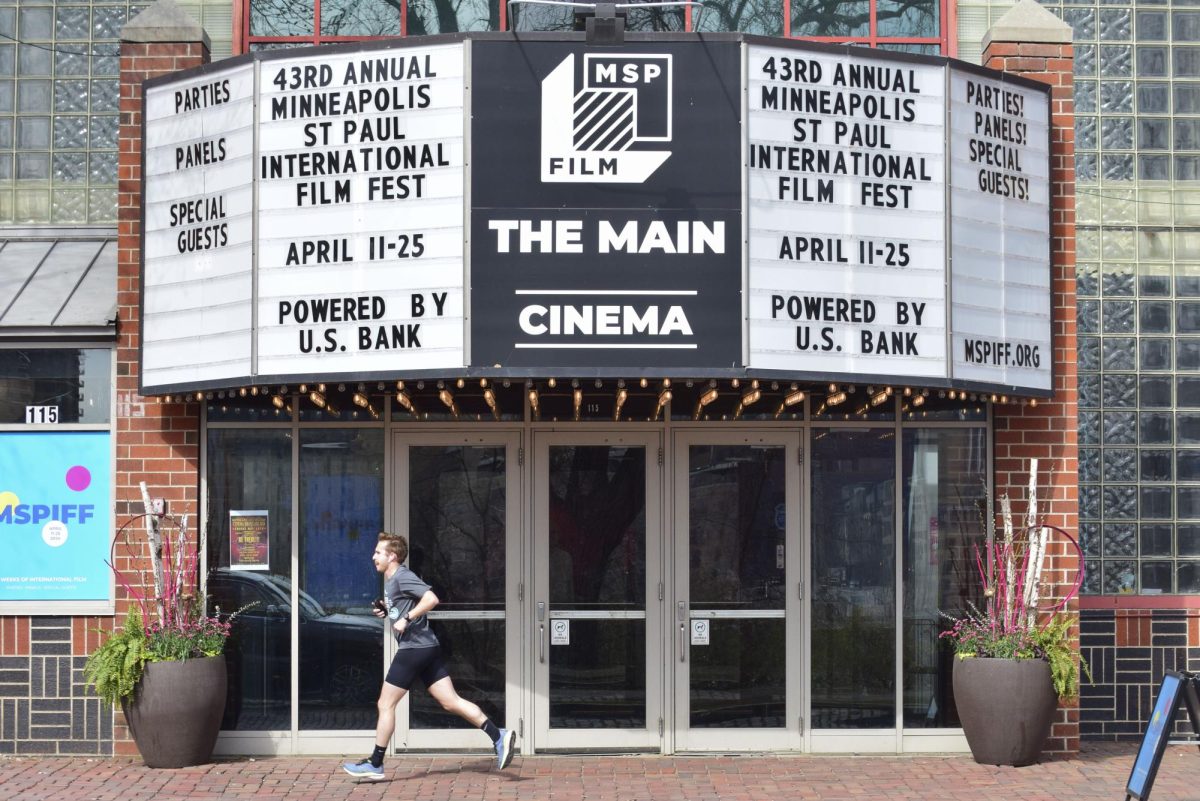The pink and turquoise neon light in the upstairs window of Korea House casts a strange glow on the dark parking lot below. The colored lights feel otherworldly – as if the restaurant stands in an alternate dimension instead of Stadium Village.
Korea House owner Kumok Hwang stands at the door. She ushers students upstairs and greets many by name.
Tonight, two of Hwang’s three businesses – the Korea House restaurant and Kumok’s Hair Salon – are closed.
But at 1 a.m. Saturday, students aren’t coming to eat or get a haircut.
They’re coming to sing.
Karaoke with a twist
“Korean people love to sing,” Hwang said.
In Asia, she explained, karaoke isn’t another ’90s trend that went the way of line dancing. There it has even been likened to a national sport.
While karaoke is generally thought to have been invented in the ’80s in Japan (karaoke means “empty orchestra” in Japanese), Korea put its own twist on the activity.
Called “noraebang,” the activity involves renting a room by the hour with anywhere from one to a dozen friends. Individuals or groups take turns singing songs they choose from a catalog. A television sits in the room, prompting singers with lyrics and often showing music videos or graphics on screen.
In Asian cities a noraebang, Korean for “singing room,” can be found on nearly every block, Hwang said.
A single noraebang can have more than 15 rooms for rent, with food and drink available via room service.
Hwang’s establishment is simpler, featuring three rooms with couches and chairs. Friends can add their own instrumentation with the green and pink plastic tambourines provided. Food is available until the kitchen closes and patrons may bring their own drinks into the rooms.
But there’s no alcohol.
“Everyone tells me to get a liquor license, but I’m a Christian, and I don’t want to sell alcohol. If they want to drink, they can drink cold water and sing,” she said.
And they do – at least some of them. Other students, though, said they’ve found ways to sneak in more than soft drinks and water.
A bit of Asia on campus
The Twin Cities has plenty of places where college students can sing karaoke, even near campus. In Dinkytown there’s Thursday night at Blarney. And everywhere from Jitters in Northeast Minneapolis to Grumpy’s on Washington devote evenings to the activity.
But karaoke isn’t noraebang. There’s only one place in Minneapolis that offers noraebang. And Hwang owns it.
She estimates 90 percent of her customers are University students, even though the average student doesn’t know the place – or the activity, for that matter – exists.
Her customer base is largely international students, she said, almost all from Asia.
“When I opened this place, people cried. They (international students) said ‘Thank you so much for giving us a place like this,’ ” she said.
As a businesswoman, she said, she intuitively knew the place would fill a need in the campus community of Asian students nostalgic for home.
Homesickness is one of the reasons many of the students need to sing in the first place, she explained.
“A lot of the foreign students are missing their home country, so that’s why they’re singing – for comfort,” she said.
Sing away stress
University junior Ray Palmer, 20, said the appeal of noraebang is “hard to understand,” but linked singing with one’s friends to the communality of Korean culture.
Along with 10 friends, Palmer, whose mother is Korean, arrived at Korea House shortly after midnight. The group came from a party celebrating Chusok, the Korean equivalent of Thanksgiving.
“Just like some Americans like to go dancing in clubs, we come here to sing,” said Mingu Kang, a senior from Korea who came with Palmer.
Since the establishment is open only on weekend nights, that’s when Kang and his friends – most of them also international students –
See usually come. They often end a night of drinking or partying with a few hours of noraebang, he said.
In the next room sophomore Kenbae Choi, 20, spent the night singing with his girlfriend. The pair went out to eat first, and didn’t drink. Choi appreciates the alcohol-free policy.
“You know there won’t be any trouble here because there’s no alcohol,” he said.
Choi, who came to the U.S. at the age of 13, said he likes noraebang because it is a “stress reliever,” akin to working out at the gym.
“Here you can yell as much as you want, and no one will call the police,” he said.
Also, it makes a good date, he said. While usually he sings only Korean pop songs, tonight he sang the BeeGees’ “How Deep is Your Love.” His girlfriend sang “I Wanna Love You Forever” by Jessica Simpson.
“She was so good,” he said. “I think she practiced.”
Try it; you’ll like it
In Asia karaoke and noraebang are serious business. So the idea of practicing a favorite song beforehand isn’t far-fetched, said junior Tomoyki Sugano, 23, a student from Japan.
“If you go to Japan, karaoke is very competitive,” Sugano said.
He extended his competitive spirit to karaoke’s cousin, noraebang. He explained to everyone in the room that they had to sing and take their songs seriously.
“Now, when you sing, you have to sing from the bottom of your heart. That’s how you relieve stress,” he said. “Otherwise it will just suck.”
Sugano also predicted the “peak” of the night would be during his rendition of Linkin Park’s “Breakin’ the Habit.”
His friend University student Takeshi Terada showed a similar dedication through sheer volume and intense facial expressions. He sang a Japanese pop song while odd animal scenes flashed on screen.
Many of the Asian and Asian-American singers are strong, confident performers like Sugano and Terada, Hwang said.
But noraebang is also fun for shy singers because there is no crowd of strangers, like in conventional karaoke, she said.
University alumnus Brad Hasskamp, came with four friends to celebrate a birthday.
The group sang to Green Day’s “American Idiot” and songs by Savage Garden and Mr. Big.
They learned about noraebang after Hasskamp spent time in Asia. Usually, they’re the only Caucasian people in the place, he said.
“Noraebang is a concept so foreign to people in the U.S.,” he said. “But if people here tried it, they’d like it.”










